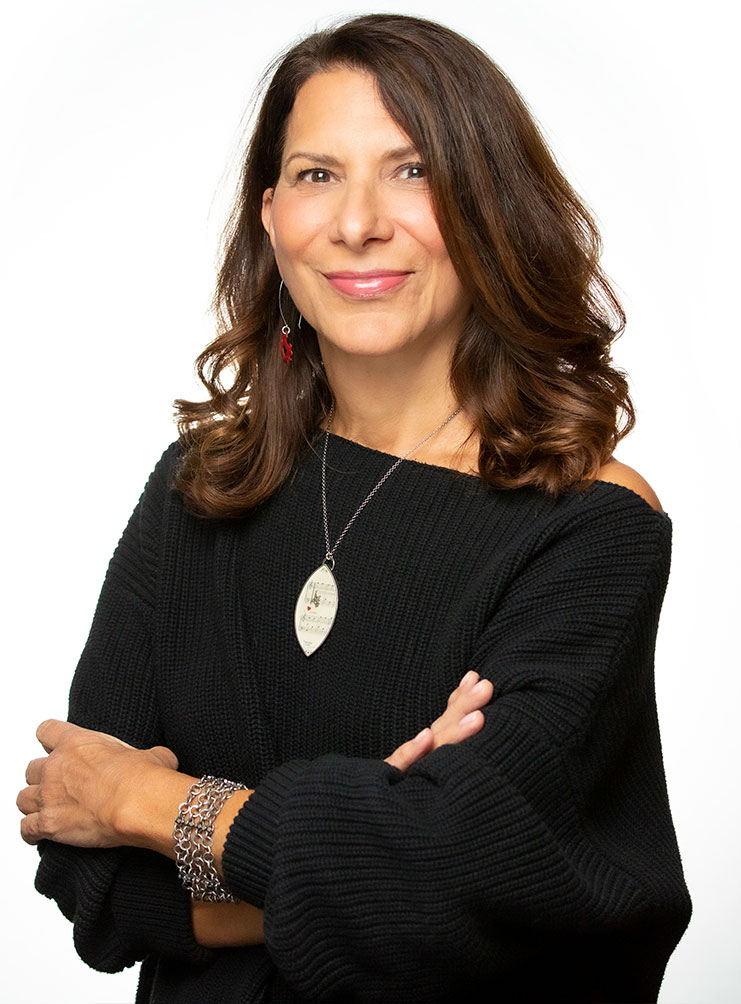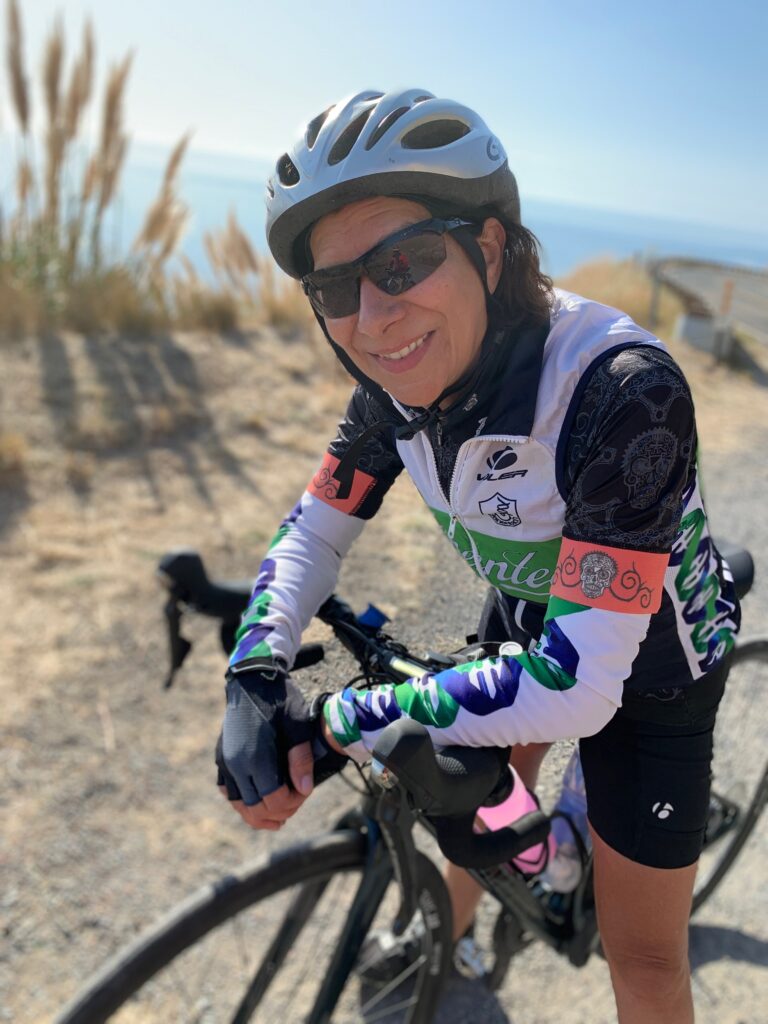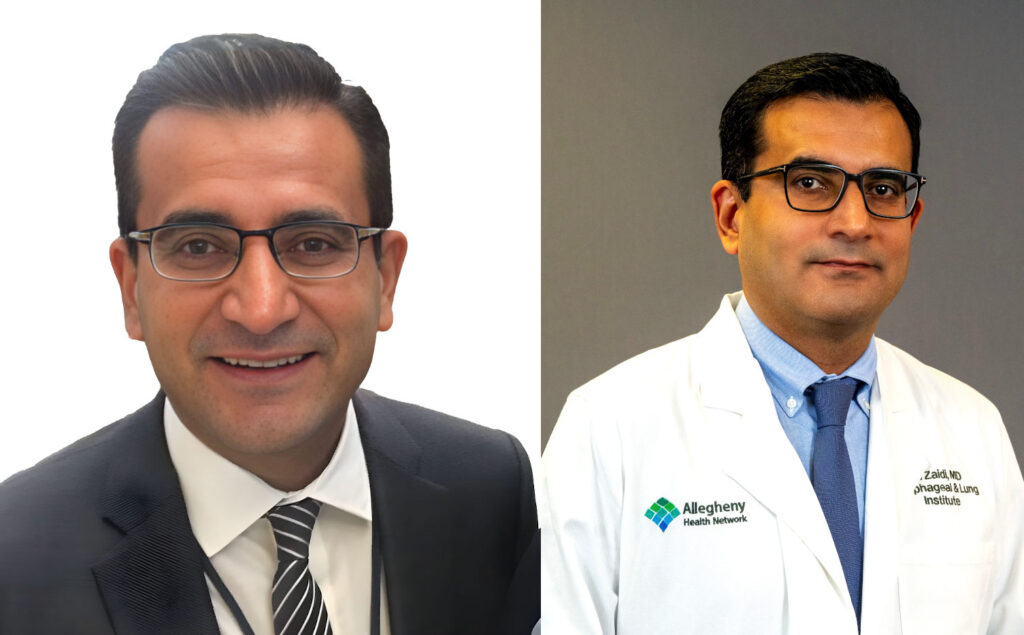This blog series explores individuals making a difference in lung cancer awareness, which is honored every November. Our series kicks off with Terri Ann DiJulio and her story.
Surviving and Thriving: An Advocate’s Journey
November 12, 2024

We are often most inspired by those who have triumphed in the face of adversity, by those with extraordinary talent, or by those who make the world a safer place for vulnerability. We are often moved to action by those who provide support when we struggle to be strong, by those who breathe hope into fear, or—simply— by those who encourage us.
Terri Ann DiJulio epitomizes what it means to be inspirational. She is a purposeful catalyst for change. A joyful, adventurous advocate. An athlete. A caregiver. A patient.
And a survivor.
But Terri Ann isn’t just any survivor; she is a three-time lung cancer and stroke survivor. One of six family members diagnosed with lung cancer, and one of only two who has survived the disease. Terri Ann has undergone three lung surgeries, radiation, and participated in a trial for an intraoperative molecular imaging agent.
And she isn’t just surviving—she is thriving! Although she sometimes refers to herself as lucky, she is living her best life today through screening, early detection, advocacy, and curiosity.
Screening and Early Detection
Approximately 15 million Americans meet the criteria for annual lung cancer screening with low-dose CT scans. But, despite a sizeable eligible population, screening rates have historically been dramatically low, with only about 5-6% of those eligible getting screened.
What’s keeping people from screening?
Sometimes, it’s the stigma of tobacco use. Or lack of awareness. Other times, it’s poor communication. Terri Ann explains that, typically, a physician must write a referral for screening—and for that to happen, a patient probably needs to communicate a heavy tobacco-use history. Even then, a recommendation from a healthcare provider is sometimes not enough. Patients must act on their doctor’s recommendation and get a low-dose CT scan annually—just like mammogram or colorectal screenings—to detect for cancers as early as possible.
Terri Ann’s experience is an excellent example of why strong communication and early detection matter. At only 42 years old, she went to her primary care physician with complaints of “chest pressure.” Her doctor was concerned that she may be experiencing a heart issue, but the office EKG machine wasn’t working, so Terri Ann was sent directly to the local emergency room.
There, she was told that while there was nothing wrong with her heart, her scan showed a small node on her right lung. “We don’t think it’s cancer because you’re young and otherwise healthy,” they told her, “but we want you to follow up in 6 months with another screening.”
Terri Ann should have followed up.
However, her primary care physician called her and convinced her to get screened. That initial screening was followed by another, and two years later, the node changed. That was almost twenty years ago.

Advocacy
Terri Ann’s doctors would not have been able to diagnose her initial lung cancer without low-dose CT screenings each year. And for 11 years after treatment of her first diagnosis, Terri Ann’s screenings showed No Evidence of Disease. That’s why she believes her subsequent two lung cancer diagnoses would not have been detected as early as they were without continuous, annual follow-ups, which is why Terri Ann says that screening is the primary focus for her Advocacy work in 2025.
Early detection positively impacts both treatment options and survival rates. Not only are treatment costs significantly lower—a tangible consideration, Terri Ann asserts, given how financially toxic cancer is—but there are also fewer complications and more treatment options available when lung cancer is detected in the early stages. Early detection also improves the chances of a complete cure with better quality of life.
It takes courage to advocate for yourself.
And that’s precisely why Terri Ann recommends knowing your risk factors, determining if you qualify for screenings, and having the courage to push for what you need. “Cancer doesn’t have to stop you from living life as you want to,” she exclaims, “especially if it’s caught early. I can still ride my bike 50 miles tomorrow if I want to!”
Curiosity
Terri Ann also credits her natural curiosity for improving her health outcomes. “It’s so easy to be intimidated by the healthcare system,” she explains, “and there can be a lack of empathy and compassion from some providers.” So how can we ensure we get the right care for our unique situation?
“Do not keep your mouth shut. Ask questions!”
Terri Ann said one of her favorite phrases is “Help me understand.” She has learned that her natural curiosity enables her to learn about her health and to understand how medical interventions work. “You can’t ever really be prepared for a diagnosis,” she says, “but positive outcomes are possible!”
Today, Terri Ann’s curiosity fuels her creative spirit (she’s writing a book!) and her sense of spontaneity. “I’m most afraid of not living my life as I want to,” she admits. And so, she lives exactly how she wants every minute she’s given—with joy and hope.



